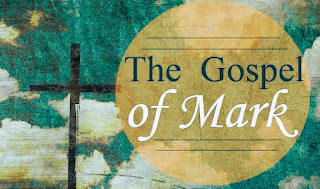Again he began to teach beside the sea. And a
very large crowd gathered about him, so that he got into a boat and sat in it
on the sea, and the whole crowd was beside the sea on the land. And he was
teaching them many things in parables, and in his teaching he said to them: “Listen!
Behold, a sower went out to sow. And as he sowed, some seed fell along the
path, and the birds came and devoured it. Other seed fell on rocky ground,
where it did not have much soil, and immediately it sprang up, since it had no
depth of soil. And when the sun rose, it was scorched, and since it had no
root, it withered away. Other seed fell among thorns, and the thorns grew up
and choked it, and it yielded no grain. And other seeds fell into good soil and
produced grain, growing up and increasing and yielding thirtyfold and sixtyfold
and a hundredfold.” And he said, “He who has ears to hear, let him hear.” (Mark 4:1-9 ESV).
Christians often become discouraged when they ponder the loss of Christian values in some parts of the world today. Christianity seems to be dwindling backward rather than speeding forward. At such times it is important to meditate on this parable about kingdom seed.
The seed that fell on the first three
types of soil failed to produce a harvest. When the crowd heard Jesus
describing three failures to produce lasting fruit, they likely figured the
story was finished. But Jesus surprised his audience by contrasting the three
failures with three gigantic successes.
At first glance it seems that the story
contains a fourfold structure—the seed falls on the path, on rocky ground,
among thorns, and finally on good soil. But a closer look reveals that the
thirty, sixty, and hundredfold harvest balance the three losses. Human failure
is contrasted with divine success. Kingdom seed keeps on sprouting and
producing fruit.
Sometimes it seems that every story we
hear centers on the hard hearts of people toward the gospel, or on shallow
lives that wander from the truth, or on crowded, thorny hearts that squelch
spiritual growth. But the surprise in the parable remains true today. The
Lord’s kingdom seed has multiplication power. An unexpected harvest of
abundance is what Jesus promises to each of us who hear the parable. Be the
kind of soil that this seed falls on and produces a great harvest!























